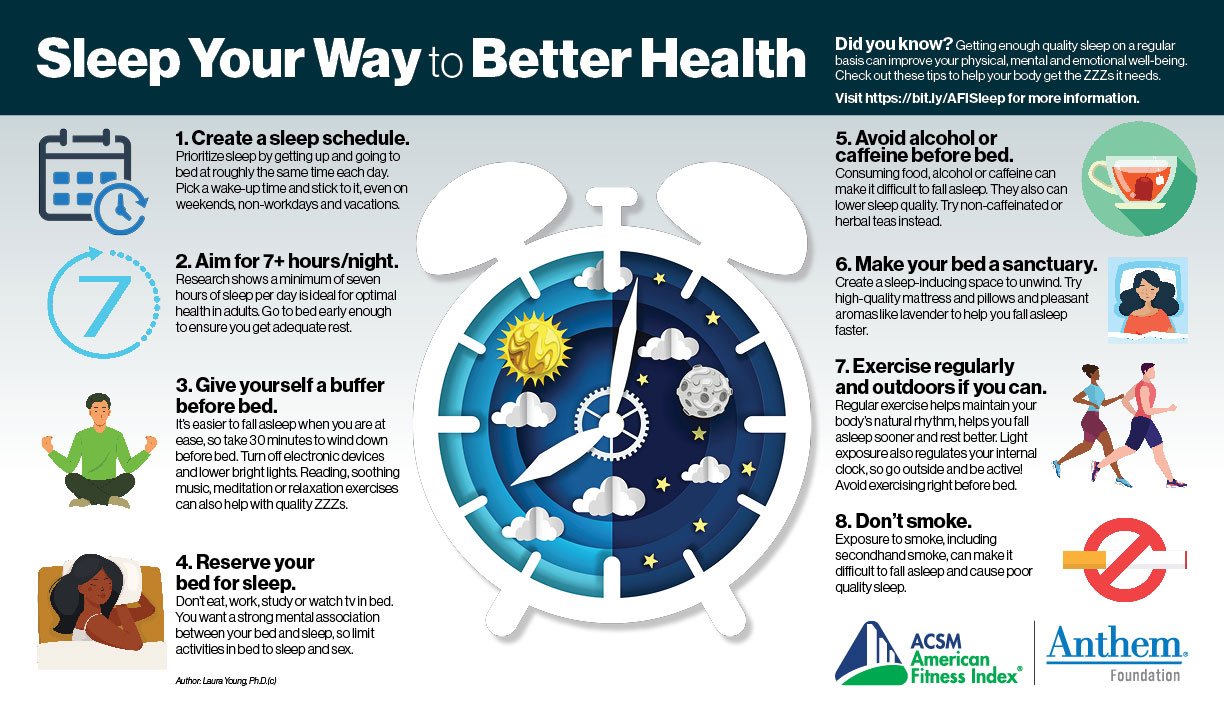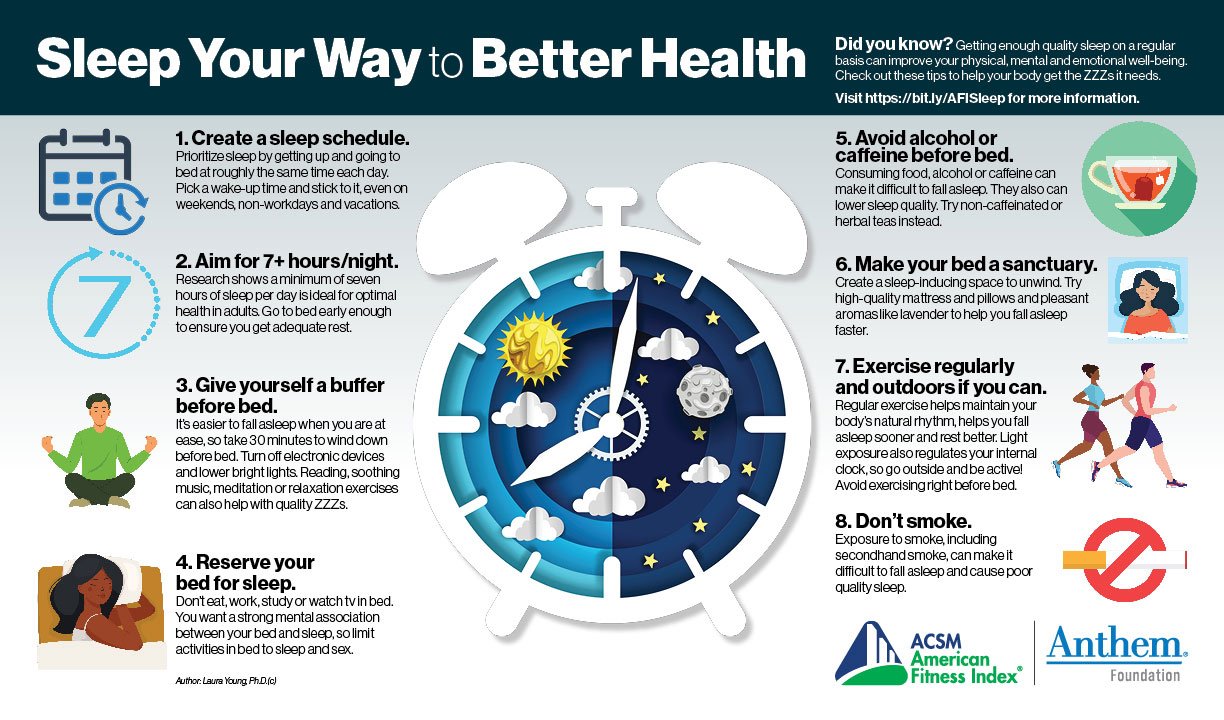Why Is Sleep Important For A Healthy Lifestyle?
Imagine if getting a good night's sleep could dramatically improve your work performance and overall health – spoiler alert, it can. Research indicates that individuals who get the recommended 7-9 hours of sleep per night are more likely to report better physical and mental health. This illustrates the crucial role sleep plays in our lives.
Historically, sleep has been seen not merely as a period of rest, but as a vital process for rejuvenation and repair. Studies have shown that sleep deprivation can lead to a myriad of health issues, including impaired cognitive function and weakened immune systems. A well-known statistic highlights that consistently poor sleepers are at a higher risk for chronic conditions such as hypertension and diabetes.

The Crucial Role of Sleep in a Healthy Lifestyle
Sleep is more than just rest; it's essential for our health. When we sleep, our bodies repair tissues and grow stronger. This makes sleep a crucial part of a healthy lifestyle.
Getting enough sleep helps us think clearly and make better decisions. For example, a well-rested brain can solve problems faster and remember new information better. Not getting enough sleep affects these abilities.
Sleep also helps regulate our mood. People who sleep well are less likely to feel angry or sad. They often have more energy and feel happier throughout the day.
Lack of sleep can lead to serious health problems. Chronic sleep deprivation is linked to heart disease, diabetes, and even obesity. Ensuring you get enough sleep is crucial for long-term health.
The Science behind Sleep and its Health Benefits
Sleep is a complex process that involves several stages, each with unique benefits. During sleep, our bodies undergo critical processes that help maintain our physical and mental health. Understanding these stages can help us appreciate the importance of quality sleep.
Stages of Sleep
Sleep has four main stages, including REM (Rapid Eye Movement) sleep. Each stage plays a role in our well-being. Light sleep helps us wake easily, while deep sleep aids body repair.
REM sleep, marked by rapid eye movements, is where dreaming occurs. This stage is crucial for memory consolidation and emotional regulation. Interrupting REM sleep can make us feel irritable and less focused.
During the night, we cycle through these stages multiple times. Ensuring we complete these cycles helps us wake up refreshed. Missing out on any stage can lead to a less restorative sleep.
Physical Health Benefits
Quality sleep supports our immune system, helping us fight off illnesses. Our bodies repair cells and tissues during deep sleep. This makes us stronger and more resilient.
The hormonal balance also improves while we sleep. Growth hormone, essential for development and healing, is released during deep sleep. This hormone helps in muscle growth and repair.
Poor sleep can disrupt these processes and lead to chronic conditions like diabetes and heart disease. Prioritizing sleep keeps our body in optimal condition. It's a simple, yet effective, way to maintain health.
Mental Health Benefits
Good sleep is essential for mental clarity and emotional balance. REM sleep, in particular, helps regulate our emotions. Waking up during this phase can make us feel moody and stressed.
During sleep, the brain processes information and forms memories. This makes learning new things easier. Without enough sleep, our ability to focus and remember details diminishes.
Consistent quality sleep can protect against mental health issues like anxiety and depression. It's a key component in maintaining a positive outlook and handling daily stressors. Prioritizing sleep creates a strong foundation for mental well-being.
Negative Impacts of Sleep Deprivation on Health
Not getting enough sleep can have serious effects on your health. One immediate impact is the lack of alertness. Feeling tired makes it harder to concentrate and make decisions.
Long-term sleep deprivation can lead to chronic health problems. It increases the risk of heart disease, diabetes, and obesity. These conditions can drastically affect your quality of life.
Sleep deprivation also weakens your immune system. When you don't sleep enough, your body has a harder time fighting off common illnesses. This makes you more susceptible to colds and infections.
Mood and mental health are also affected by poor sleep. People who are sleep-deprived are more likely to feel stressed, anxious, or depressed. Quality sleep is vital for a stable and happy mind.
Importance of Sleep for Cognitive Function
Getting enough sleep is crucial for our brain's functioning. During sleep, the brain processes information from the day. This helps strengthen memories and learning.
Sleep improves focus and concentration. When we are well-rested, our attention span and ability to solve problems increase. This makes us more productive and efficient.
Another key benefit of sleep is decision-making. A rested brain can evaluate options and make better choices. Lack of sleep, on the other hand, can lead to poor judgments.
Sleep also plays a role in emotional regulation. It helps us manage stress and handle emotions. People who sleep well are generally more resilient to life's challenges.
The brain removes toxins while we sleep. This cleaning process helps prevent cognitive decline and other brain disorders. Ensuring we get quality sleep keeps our brain healthy.
Lack of sleep can lead to slower reaction times. This is especially critical for activities that require quick decisions, like driving. Quality sleep can improve our safety and overall well-being.
Understanding Sleep Disorders and their Implications
Sleep disorders affect millions of people worldwide. These conditions disrupt normal sleep patterns and impact daily life. Common sleep disorders include insomnia, sleep apnea, and restless leg syndrome.
Insomnia is when you have trouble falling or staying asleep. This leads to feeling tired during the day. Over time, insomnia can affect your mood, energy levels, and health.
Sleep apnea causes breathing to stop and start during sleep. This can lead to poor sleep quality and daytime fatigue. Severe cases may increase the risk of heart disease.
Restless leg syndrome causes an urge to move your legs, especially at night. This sensation can make it hard to fall asleep. Lack of sleep from this condition affects your overall well-being.
Here are some symptoms of sleep disorders:
- Difficulty falling or staying asleep
- Loud snoring or gasping for air during sleep
- Feeling tired despite a full night’s sleep
- Frequent nighttime awakenings
If you suspect you have a sleep disorder, it’s important to seek help. Treatments are available to improve sleep quality. Addressing sleep disorders can enhance your overall health and quality of life.
Role of Sleep in Weight Management
Getting enough sleep is essential for maintaining a healthy weight. Lack of sleep disrupts the hormones that control hunger. This can lead to overeating and weight gain.
When you don’t sleep well, your body produces more ghrelin, the hormone that makes you feel hungry. At the same time, it reduces leptin, the hormone that signals fullness. This imbalance leads to increased appetite and calorie intake.
Sleep deprivation also affects your metabolism. A slower metabolism makes it harder to burn calories efficiently. Over time, this can contribute to weight gain.
Additionally, tiredness from poor sleep can reduce your motivation to exercise. Physical activity is crucial for weight management. Lack of energy can make it difficult to stay active.
For effective weight management, aim for 7-9 hours of quality sleep each night. Here are some tips:
- Stick to a regular sleep schedule
- Create a relaxing bedtime routine
- Avoid heavy meals before bedtime
- Limit caffeine and screen time in the evening
Sleep Hygiene: Practices for Better Sleep
Good sleep hygiene means creating habits that support high-quality sleep. One key practice is sticking to a regular sleep schedule. Go to bed and wake up at the same time every day.
Create a relaxing bedtime routine that prepares your body for sleep. Activities like reading, listening to calm music, or taking a warm bath can signal your brain that it's time to unwind. Avoid stimulating activities before bed.
Your sleeping environment also affects sleep quality. Make your bedroom cool, dark, and quiet. Investing in a comfortable mattress and pillows can make a big difference.
What you eat and drink also plays a role in sleep hygiene. Avoid heavy meals, caffeine, and alcohol close to bedtime. These substances can disrupt your sleep patterns.
Physical activity during the day improves sleep quality. Aim for at least 30 minutes of exercise most days of the week. However, try not to exercise too close to bedtime as it might keep you awake.
- Stick to a regular bedtime and wake-up time
- Develop a calming pre-sleep routine
- Create an ideal sleeping environment
- Avoid stimulants like caffeine late in the day
- Stay active but avoid late-night workouts
The Relationship between Sleep and Stress
Sleep and stress are closely connected. High stress levels can make it hard to fall asleep. Lack of sleep, in turn, can increase stress.
When you're stressed, your body releases cortisol, a "stress hormone." Elevated cortisol levels can disrupt your sleep cycle. This makes it harder to get a restful night's sleep.
On the other hand, quality sleep can help manage stress. When you sleep well, your body is better at handling stress. This makes you more resilient to daily challenges.
Practicing good sleep hygiene can reduce stress levels. Regular sleep schedules and calming pre-sleep routines can help. These practices signal to your body that it's time to relax.
- Try relaxation techniques like deep breathing before bed
- Avoid caffeine and heavy meals in the evening
- Ensure your sleep environment is quiet and comfortable
Managing stress through better sleep contributes to overall health. Prioritizing sleep allows your body and mind to recover. This results in a healthier and happier life.
Frequently Asked Questions
Sleep is vital for maintaining a balanced and healthy lifestyle. Here are some common questions people have about the role of sleep and its impact on health.
1. How many hours of sleep do adults need?
Most adults need between 7-9 hours of sleep each night to function optimally. This amount allows the body to complete necessary cycles of light, deep, and REM sleep.
Getting less than 7 hours regularly can lead to fatigue and other health issues. Ensuring sufficient sleep improves both mental and physical well-being.
2. Can poor sleep contribute to weight gain?
Yes, poor sleep disrupts hormones that regulate hunger, causing increased appetite. Higher levels of ghrelin make you hungrier, while lower levels of leptin fail to signal fullness.
This imbalance can lead to overeating and weight gain. Quality sleep helps maintain proper hormone balance and supports healthy weight management.
3. What are common causes of insomnia?
Insomnia can be caused by stress, anxiety, or depression. Other factors include an irregular sleeping schedule or poor sleeping environment.
Caffeine, nicotine, and certain medications can also contribute to insomnia. Addressing these underlying causes can help improve your sleep quality.
4. How does sleep affect mental health?
Adequate sleep is crucial for emotional regulation and cognitive function. Poor sleep increases the risk of mental health disorders like anxiety and depression.
Restorative sleep helps to manage stress better and maintains a positive outlook on life. Prioritizing good sleep hygiene greatly benefits mental health.
5. Why do some people experience vivid dreams during REM sleep?
The REM stage is when the brain is highly active, processing emotions and memories vividly. Vivid dreams often result from this heightened brain activity during REM cycles.
This stage plays a critical role in emotional well-being and memory consolidation. Experiencing vivid dreams indicates that your brain is actively working through important processes while you rest.
Conclusion
Understanding the importance of sleep is crucial for maintaining a healthy lifestyle. Adequate sleep supports cognitive function, emotional regulation, and overall well-being. It's a simple yet vital component of our daily lives.
Poor sleep can lead to significant health issues, including weight gain, mental health disorders, and chronic diseases. Prioritizing good sleep hygiene and addressing sleep disorders when they arise can dramatically improve quality of life. Sleep well to live well.
